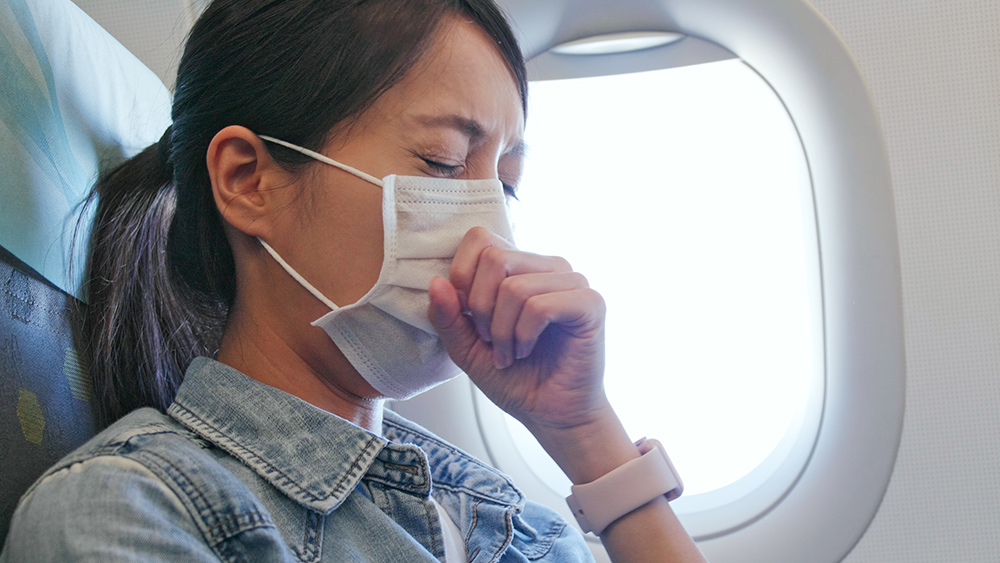Pneumonia happens to everyone, but when does it become fatal?
03/24/2020 / By Divina Ramirez

About 200 million cases of viral pneumonia occur every year, according to a recent review published in The Lancet. Researchers from Turku University Hospital in Finland and the University of Otago in New Zealand discussed several causes of viral pneumonia and how the infection is linked to other respiratory diseases, such as Severe Acute Respiratory Syndrome (SARS) and avian influenza.
Most cases of pneumonia are mild, and people easily recover within one to three weeks. However, infants, children and adults over 65 years old have a higher risk of developing severe pneumonia than others. These people often suffer life-threatening complications due to having under-developed or weakened immune systems.
What is pneumonia?
Pneumonia is a viral or bacterial infection of the lungs that causes the air sacs to become inflamed. In most cases, the body can easily fight off the pathogens that irritate the lungs. This response triggers various symptoms that resemble those of the common cold, such as fever, chills, shortness of breath, chesty cough, nausea, fatigue and loss of appetite. However, an abundance of pathogens may overwhelm the body’s immune system and cause potentially life-threatening symptoms. Individuals with severe pneumonia may experience difficulty breathing, chest pain and high fever.
Pneumonia is a relatively common illness that can happen to anyone regardless of age. However, some people may be more at risk than others due to their age, existing medical conditions, lifestyle choices and environments. For instance, infants and toddlers have a high risk of pneumonia because their immune systems are not yet fully developed. Adults over 65 years old also have an increased risk due to their weakened immune systems. According to the World Health Organization (WHO), 156 million cases of pneumonia in children below five years are recorded annually. Additionally, cases of pneumonia may be five times higher in developing countries than in developed regions.

Meanwhile, immunocompromised individuals, such as those with existing lung conditions, cardiovascular disease or chronic ailments, may also have a higher risk of severe pneumonia. These include smokers and individuals who are regularly exposed to toxic chemicals, fumes and secondhand smoke. (Related: Even the briefest exposure to air pollution can trigger an acute respiratory infection in young children.)
When does pneumonia become fatal?
According to the researchers, certain viruses and respiratory infections can worsen the symptoms of pneumonia. For instance, fatal pneumonia in elderly residents of nursing homes has been associated with the rhinovirus, which is predominantly responsible for the common cold. Pneumonia is also closely associated with viral infections such as the SARS coronavirus (SARS-CoV), the avian influenza A (H5N1) virus and the pandemic influenza A (H1N1) virus.
During the SARS outbreak in 2003, experts observed that infected individuals showed symptoms of severe pneumonia and lung injury. SARS-CoV infected more than 8,000 people worldwide and caused 774 deaths. On the other hand, H5N1 infected more than 450 people in 2002. Common symptoms of the H5N1 infection included multiple organ failure and severe pneumonia, which eventually progressed to acute respiratory failure. Then in 2009, H1N1 infected more than 59 million people in the U.S. alone. H1N1 was responsible for 18,000 deaths, which was caused by viral pneumonia and acute respiratory distress syndrome.
The WHO estimates that about four million people die from pneumonia each year. In 2008, 1.6 million children below five years of age died from pneumonia. However, pneumonia may be five times more prevalent in developing countries than in developed regions due to lack of access to medical care. As such, children and older adults in developing countries are more at risk of developing severe or potentially fatal pneumonia.
Pneumonia continues to be one of the major causes of death in young children, especially those living in developing countries. Pneumonia is closely associated with various microorganisms and viruses, which have been shown to cause severe and life-threatening symptoms in immunocompromised individuals. However, healthy lifestyle choices may help reduce the risk of pneumonia, such as following a balanced diet rich in foods that fortify the immune system.
Sources include:
Submit a correction >>
Tagged Under:
aging, children's health, common cold, fatal pneumonia, immune system, immunocompromised, infant's health, infectious diseases, influenza, lung health, Pneumonia, respiratory infections, SARS, smoking, superbugs, viral infections
This article may contain statements that reflect the opinion of the author



















